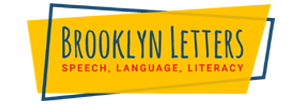RETHINKING STUTTERING THERAPY:
Moving Beyond Ableism

Stuttering is a common communication difference that affects millions of people worldwide. While speech therapy can be a valuable tool for many who stutter, there’s a growing concern about the potential for ableism within traditional approaches.
What is Ableism?
Ableism is discrimination or prejudice against people with disabilities. In the context of stuttering therapy, ableism can manifest in various ways, such as:
- Pathologizing stuttering: Framing stuttering as a problem or defect that needs to be fixed.
- Focusing solely on fluency: Prioritizing achieving fluent speech above all else, disregarding the speaker’s experience and communication needs.
- Not including people who stutter in decision-making about their therapy: Failing to listen to their perspectives and preferences.
The Harms of Ableism in Stuttering Therapy
Ableism in stuttering therapy can have negative consequences for people who stutter. It can lead to:
- Low self-esteem and anxiety: Feeling like their stuttering is something to be ashamed of. Feeling like a failure if they cannot achieve fluency in their speech therapy sessions.
- Fear of speaking: Avoiding communication situations altogether.
- Negative experiences in therapy: Feeling unheard, judged, or pressured to be someone they’re not.
- Internalized ableism: Believing the negative stereotypes about stuttering and applying them to oneself.
Moving Towards a More Affirming Approach
Thankfully, there’s a growing movement towards more affirming approaches to stuttering therapy. These approaches emphasize:
- Acceptance and self-compassion: Helping people who stutter accept their disfluencies as a normal part of who they are.
- Person-centered care: Focusing on the individual’s goals and needs rather than a one-size-fits-all approach.
- Fluency modification: Teaching strategies to manage disfluencies if desired but not prioritizing fluency at the expense of communication effectiveness.
- Collaboration and empowerment: Working with people who stutter as partners in their therapy journey, respecting their autonomy and expertise.

Examples of Affirming Therapy Practices
Here are some specific examples of affirming therapy practices:
- Using stuttering-positive language: Avoiding terms like “defect” or “problem” and instead use neutral terms like “disfluency” or “difference.”
- Normalizing stuttering: Discussing stuttering openly and honestly, acknowledging its prevalence and diversity.
- Providing psychoeducation: Helping people understand the nature of stuttering and its impact on communication.
- Building communication skills: Focusing on strategies for effective communication, regardless of fluency.
- Supporting advocacy: Encouraging people who stutter to speak out about their experiences and challenge negative stereotypes.
Conclusion
Stuttering therapy should be a journey of empowerment and self-acceptance, not shame and pressure. Moving beyond ableism and embracing affirming approaches can create a more supportive and inclusive environment for people who stutter to thrive.
Call to Action
- If you are stuttering, seek a therapist who is knowledgeable about and respectful of stuttering diversity.
- If you are a speech-language pathologist, reflect on your biases and practices and actively seek to incorporate affirming approaches into your work.
- Let’s all work together to create a world where stuttering is accepted and celebrated and everyone can communicate confidently and clearly.
Additional Resources
- The Stuttering Foundation of America: https://www.stutteringhelp.org/index.html
- The National Stuttering Association: https://www.stutteringhelp.org/index.html
- The International Stuttering Association: https://www.stutteringhelp.org/index.html
I hope this blog post has sparked your interest in the issue of ableism in stuttering therapy. If you have any questions or comments, please share them below.
Let’s strive for a world where everyone can communicate without fear or judgment!
Call: (347) 394-3485, Text: (917) 426-8880
Email: [email protected]
(we respond to emails right away!)
Amy Strekas
Latest posts by Amy Strekas (see all)
- Ableism in Stuttering Therapy - February 12, 2024
